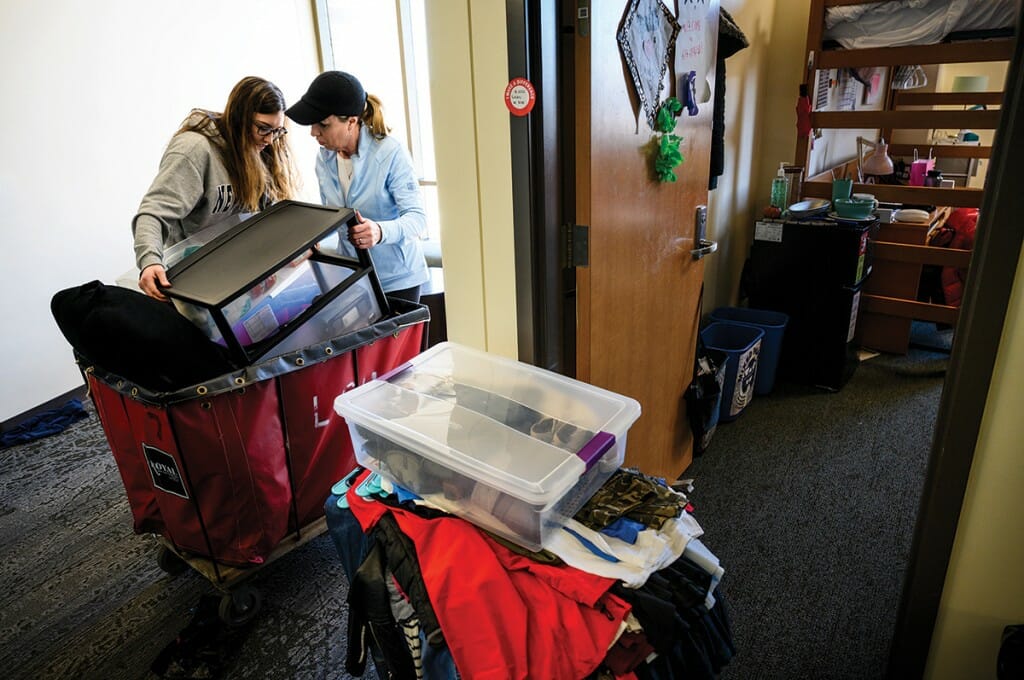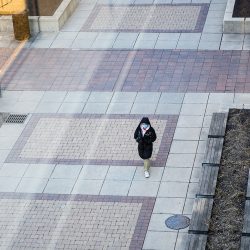When the Unthinkable Happens
An emergency fund helps students weather the COVID-19 crisis.

The Emergency Student Support Fund has assisted more than 5,000 students during the pandemic. Jeff Miller
In the wake of the COVID-19 pandemic, students were asked to leave their residence halls in order to reduce the chances of disease transmission. The UW’s Office of Student Financial Aid (OSFA) and the Wisconsin Foundation and Alumni Association (WFAA) quickly went into action to support students through this unprecedented transition.
OSFA immediately received inquiries from financially vulnerable students who were unable to travel home to their families, were unable to work and pay their bills in the coming weeks, or were in need of supplies and basic resources.
WFAA created the Emergency Student Support Fund to assist students and families during this time. At press time, OSFA had helped more than 5,000 students with emergency financial support, both from the new fund and from other sources, including a substantial portion from the federal CARES Act targeted for student emergency aid.
Many students shared stories of urgent need with the financial aid office. One sophomore who requested help with buying groceries was unable to return home because his father suffers from immune deficiencies, and he did not want to potentially expose him to the virus. Others reported that their workplaces had closed, and some international students without the means to fly home were at a special disadvantage.
The resources from the Badger community have provided much-needed relief. One student said, “I am speechless right now; I cannot express how much this will help me over the next three weeks. I was so worried about how I was going to get by, but this is truly a godsend. Thank you so much!”
Another said, “You just literally solved all of my worries in less than a day, and I cannot thank you enough. I am eternally grateful for your kindness and commitment to helping students in need.”
Published in the Summer 2020 issue



Comments
No comments posted yet.